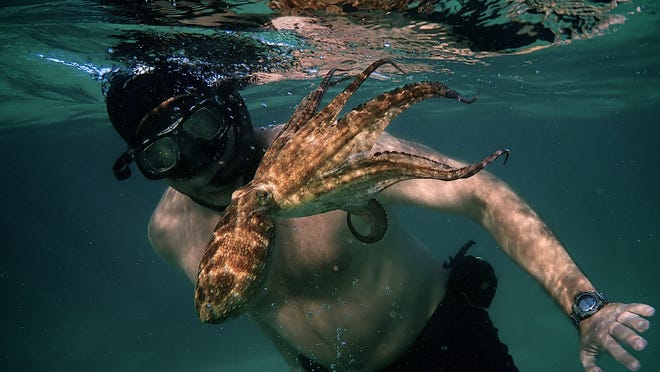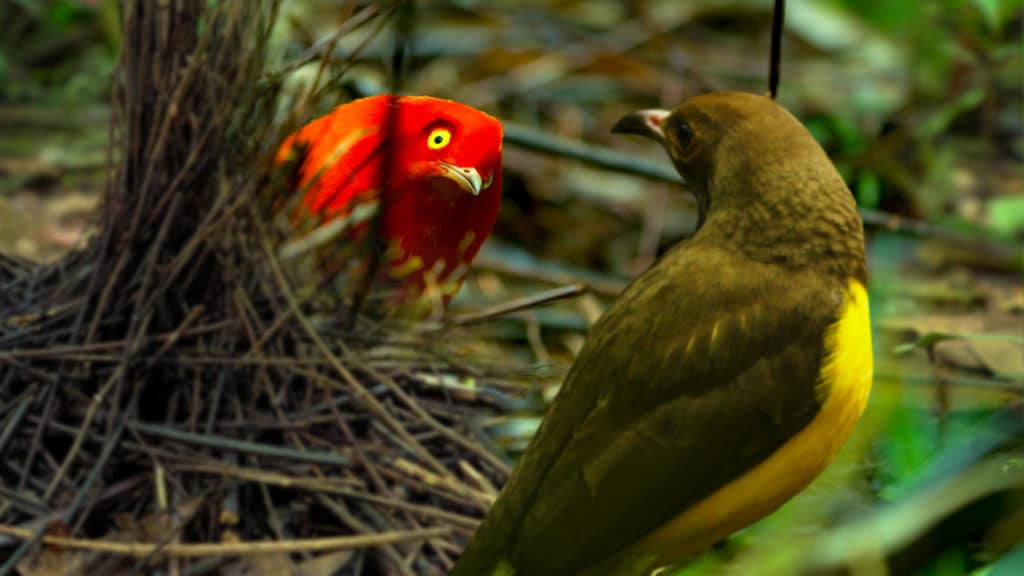With all the environmental problems that the planet faces today, it can be overwhelming to understand it all. Thankfully, some of the world’s greatest documentary filmmakers have made it their mission to inform, educate and highlight these important issues. From investigations into the ivory trade to stunning features of underwater ecosystems, not to mention David Attenborough movies, these are some of the best and must-see environmental films on Netflix.
—
10 Environmental Films Exclusively on Netflix
1. Seaspiracy (2021)
Seaspiracy is a shocking documentary film about the extent to which human beings have plundered the oceans of marine life. Most of us are aware of the fact that the commercial fishing industry is depleting fish stocks to the point where they are unable to recover, and the documentary drives home its impact through dramatic scenes from fish farms that are rife with diseases, to former slaves in the industry sharing tales of abuse and murder, as well as heartbreaking footage of whaling in the Faroe Islands. Seaspiracy advocates ending fish consumption whilst highlighting the development of plant-based alternatives for seafood and protein.
2. A Plastic Ocean (2016)
In what Sir David Attenborough calls “one of the most important films of our time”, this beautifully-shot and award-winning documentary follows journalist Craig Leeson as he searches for the elusive blue whale and instead, encounters plastic waste throughout his journey. Leeson is joined by free diver Tanya Streeter and an international team of scientists and researchers as they travel across 20 locations around the world over the period of four years to explore the fragile state of our oceans, uncover alarming truths about plastic pollution, and reveal working solutions that can be put into immediate effect.
3. David Attenborough: A Life on Our Planet (2020)
Serving as the “witness statement” of world-renowned naturalist David Attenborough, the 85-minute documentary takes a look back at his 60-year career while illustrating how the biodiversity of our planet has degenerated over his lifetime, as well as making grim predictions of the future should humanity continue on its current path. Atypical of his usual nature documentaries, Attenborough takes a more critical tone in A Life on Our Planet and condemns human’s treatment of the natural world. Ultimately, he does end it with a more hopeful message and highlights the solutions in which the world can restore biodiversity, making this one of the must-see environmental films on Netflix.

Craig Foster interacting with a wild common octopus in My Octopus Teacher. Photo credit: Netflix.
4. My Octopus Teacher (2020)
This deeply personal feature took home the Oscar for Best Documentary in 2020 for its emotional narrative and documentation of an unlikely friendship between filmmaker and diver Craig Foster forging and a wild common octopus. Filmed in an underwater kelp forest in False Bay near Cape Town, South Africa, My Octopus Teacher sees Foster develop a strong attachment to an octopus as he tracks her movements every day, witnessing how the octopus defends herself against pyjama sharks before eventually dying after mating. Accompanied by stunning footage of the underwater world, this film will make audiences care and invest in an octopus they have never met.
5. The Ivory Game (2016)
One of the best environmental films available on Netflix is The Ivory Game, a gripping investigative documentary that sees two undercover filmmakers delve into the multi-million-dollar ivory trade in China and Hong Kong, as well as its complexities and repercussions. The film exposes the deep-rooted corruption that fuels the trade and highlights the impacts of the ivory trade on the global elephant population, warning of its impending extinction within the next 15 years if no action is taken. Its call to end ivory trade is ultimately effective as Hong Kong lawmakers have voted overwhelmingly to ban it in 2018, which became fully enforced in 2021.
You might also like: Top 17 Best Environmental Films of 2021
6. Cowspiracy: The Sustainability Secret (2014)
As the clever pun of the title suggests, Cowspiracy dives into the shockingly unchallenged and what the filmmakers claim to be the most destructive industry facing the planet: the animal agriculture industry. Aside from illustrating the environmental impacts of deforestation, water pollution to topsoil erosion, the documentary was one of the earliest to bring to light the industry’s staggering greenhouse gas emissions, revealing that it is responsible for more emissions than combined exhaust from all transportation. A number of reports on the industry’s contribution to climate change have been published since the film’s release, including one about how 20 meat and milk producers emit more carbon than Germany, France or Britain.
7. Virunga (2014)
This suspenseful Oscar-nominated film chronicles the story of four rangers who have risked their lives to save Africa’s most precious national park and its endangered gorillas, which are some of the world’s last mountain gorillas. Directed by British filmmaker Orlando von Einsiedel with executive producer Leonardo DiCaprio, the documentary puts the spotlight on Congo’s Virunga National Park during the rise of the violent M23 Rebellion in 2012 and investigates British oil company Soco International’s oil drilling activities and exploration within the World Heritage Site. In response to the film’s release and subsequent backlash, Soco officially ended all oil exploration in Virunga in April 2014.
8. Chasing Corals (2017)
While it’s a well known fact that the world’s coral reefs are disappearing and dying, not many of us are aware of its full extent or understand what that truly means. In this stunning documentary compiled from over 500 hours of underwater footage from 30 countries, divers, scientists and photographers are showing audiences the shocking effects of rising ocean temperatures and climate change. These experts make the point that 93% of the rise in temperatures is absorbed by the oceans, where the biggest and incontrovertible damages are being done, and making predictions ranging from mildly catastrophic to the entire collapse of the whole global ecosystem. Chasing Corals is also part of an impact campaign to slow down the loss of our coral reefs as well as supporting communities and solutions in protecting these precious marine ecosystems.

Photo credit: Netflix.
9. Dancing with Birds (2019)
Produced by the team behind Our Planet, a popular eight-part nature documentary series on Netflix, Dancing with Birds is more than just a compilation of exotic birds performing quirky mating dances, though there is no shortage of entertaining footage of them showing their courtship routines. This nature documentary focuses on the male bird, introducing individual “characters” to the audience as they strive to present their best to potential mates nearby. We witness both their successes and failures, which are uniquely presented through the female gaze. Accompanied by the affectionate narration of Stephen Fry and scenes bursting with colours, this film will surely bring a smile to any viewer.
10. Mission Blue (2014)
Join the world renowned oceanographer Sylvia Earle in her campaign to save the ocean from overfishing and toxic waste. As one of the first and foremost American women oceanographers, Earle provides an authoritative voice in driving home the message that humans are destroying the oceans, and that should it die, so will humanity. With her natural charisma and infectious enthusiasm, this documentary is not burdened with technical language and yet is informative in explaining issues such as how overfishing is depleting our oceans and driving fish species to extinction, and the importance of algae and plankton in our fight against the climate crisis. Look out for famous cameos throughout the film including American director James Cameron and documentary filmmaker Mike deGruy.
11. The Minimalists: Less Is Now
Content creator and director Matt d’Avella’s latest documentary is the story of two friends, Joshua Fields Millburn and Ryan Nicodemus, better known as The Minimalists, showing the many benefits of living as minimalists. The title – Less Is Now – was inspired by the popular maxim “Less is more,” popularised by architect Ludwig Mies van der Rohe, who used this aphorism to describe his design aesthetic; his tactic was one of arranging the necessary components of a building to create an impression of extreme simplicity.
In a world where modern consumerism and throwaway culture are drowning us in waste and inflicting irreversible damage to our planet, d’Avella reminds us that having more doesn’t equal happiness or success.
Featured image by: Virunga/Netflix.
You might also like: 7 Best David Attenborough Movies About Nature and Wildlife


















